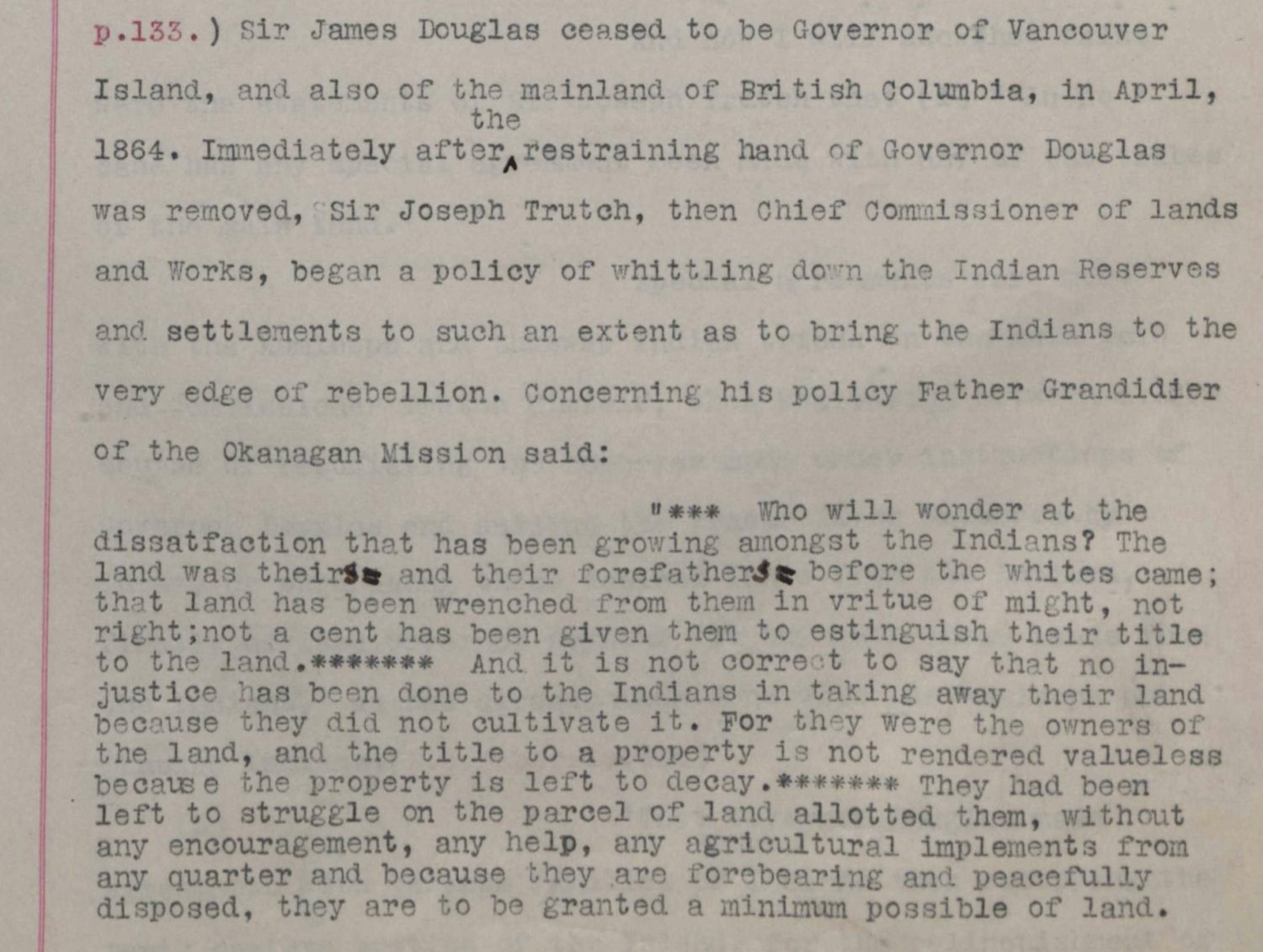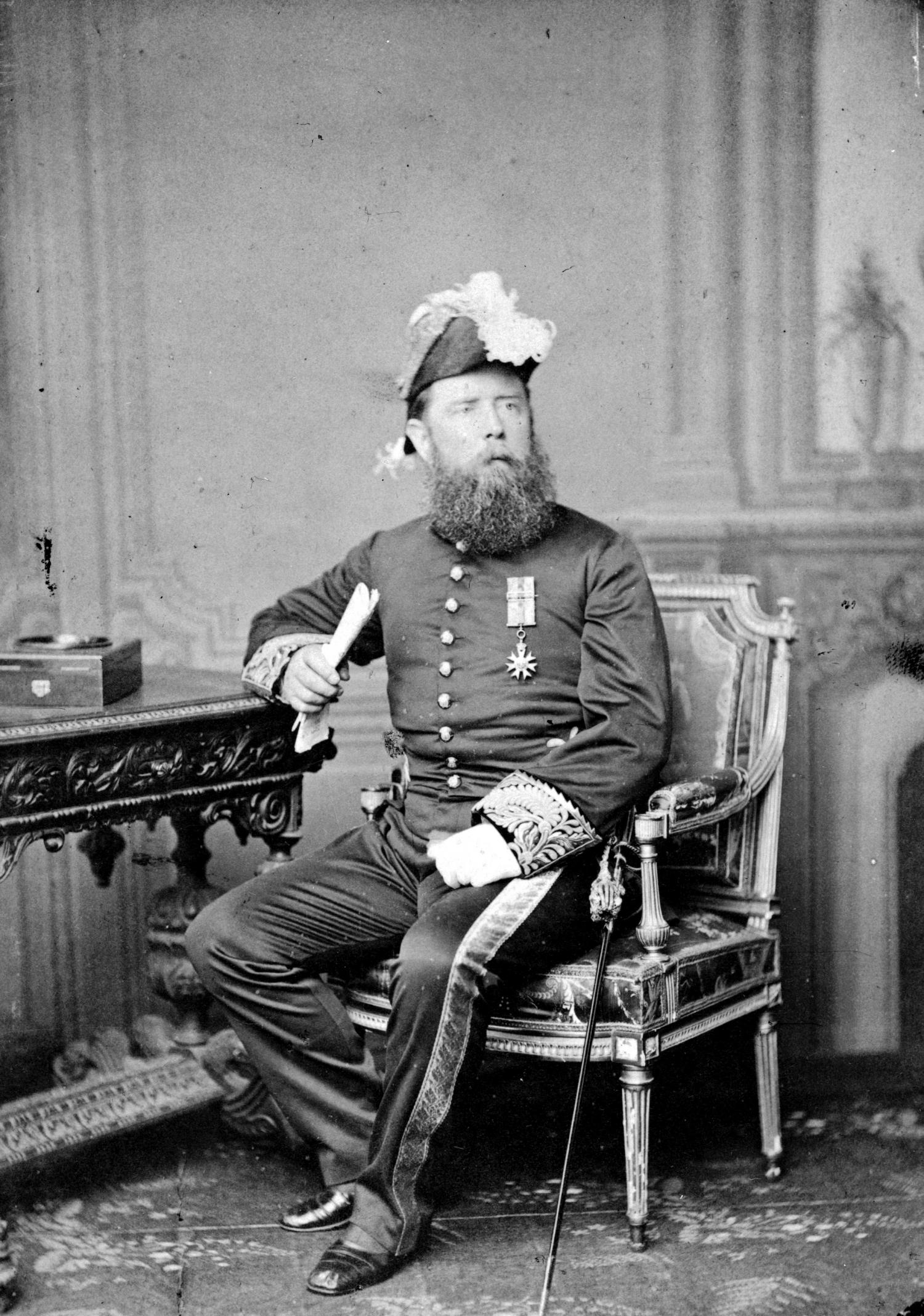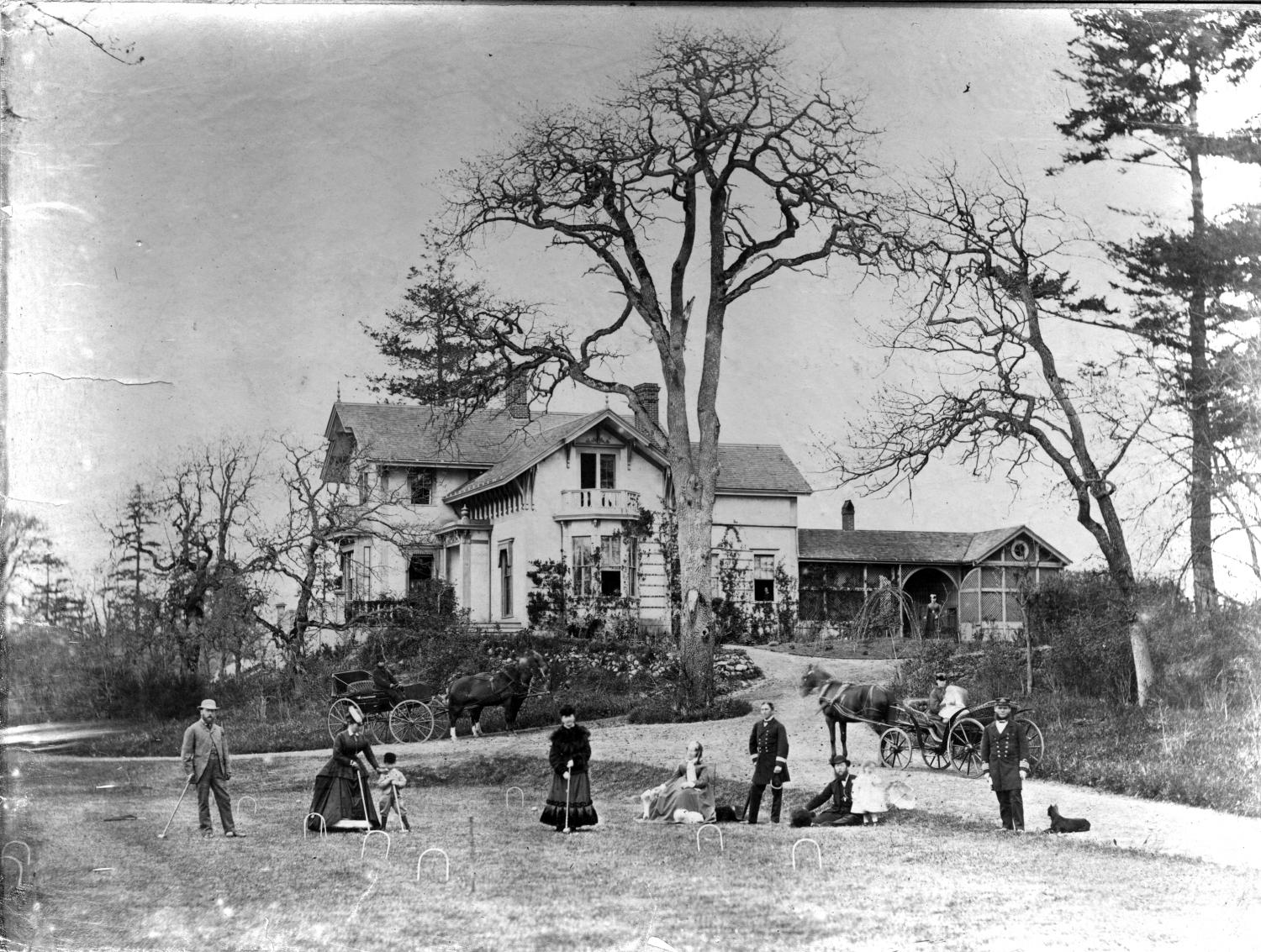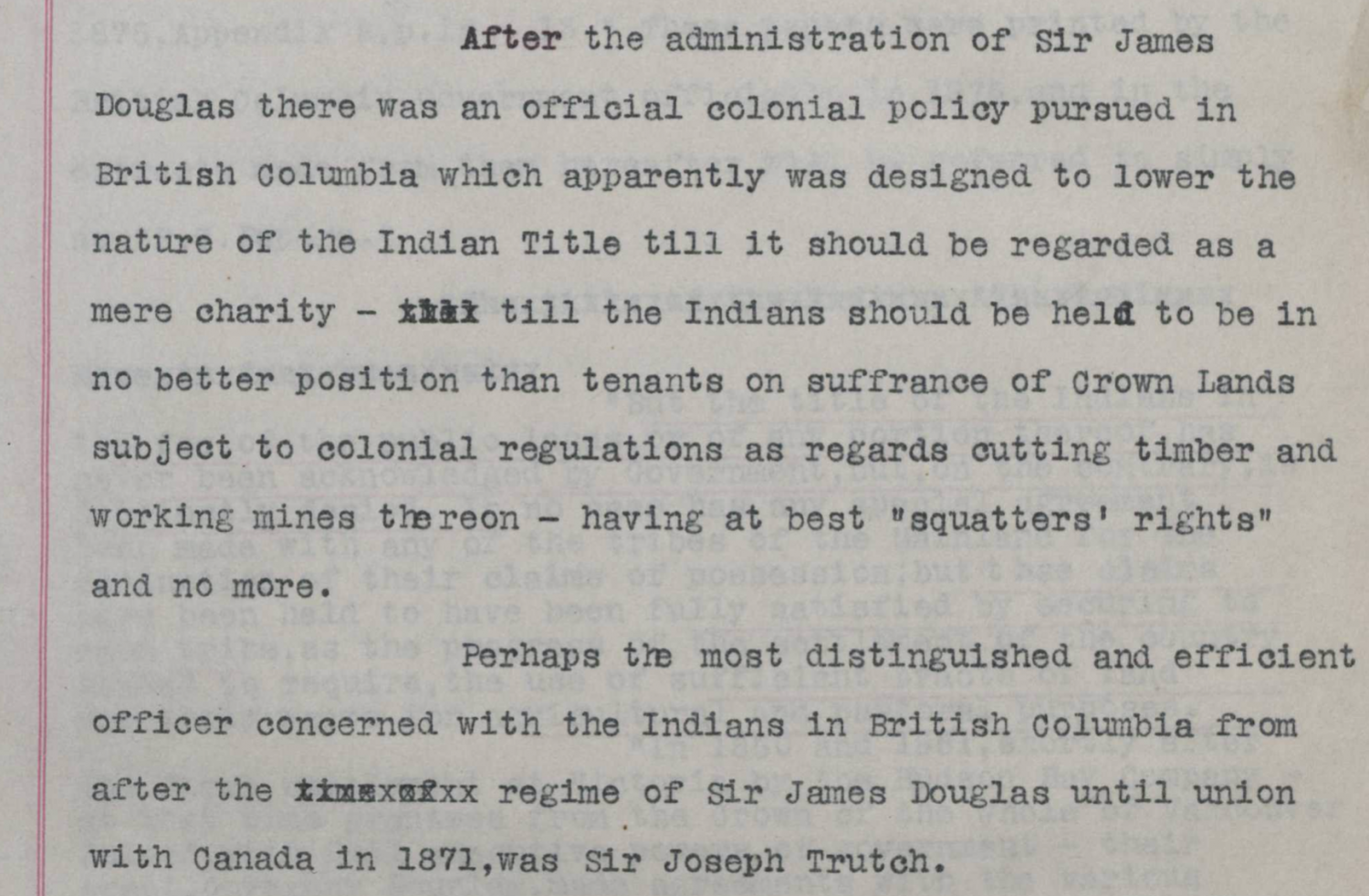Joseph Trutch
Bigoted aganst Indigenous people, Trutch shrunk reserves and refused to recognize Aboriginal title
Date: 1864
In 1864, James Douglas retired as governor after overseeing Vancouver Island and the mainland Colony of British Columbia for a combined 19 years. Douglas had a complicated relationship with Indigenous communities in B.C. His wife Amelia was Swampy Cree, and he signed 14 treaties with First Nations on Vancouver Island, the only treaties to be signed in B.C. for more than a hundred years. However, Douglas also wielded an iron fist against Indigenous people when he saw fit.
But his approach to his Indigenous counterparts was far gentler than Joseph Trutch, whose power quickly rose after Douglas retired. Trutch held nothing but disdain for Indigenous people. Appointed chief commissioner of land and works immediately before Douglas’s departure, Trutch quickly undid many of the former governor’s Indigenous policies. In doing so, Trutch severely restricted a connection to the land that First Nations had enjoyed for millennia. The repercussions are still felt to this day.
In 1867, Trutch refused to recognize reserves Douglas had set aside for First Nations. In some cases, he reduced the size of reserves by as much as 90 per cent, despite Douglas’s insistence they not be touched. Trutch could not understand Indigenous people’s close relationship to the land, which is not only crucial for sustenance but also features heavily in traditional culture and belief systems. Instead, he believed Aboriginal people merely wasted what he saw as land prime for settlement and farming. And Trutch did not keep his hatred of First Nations a secret. Throughout his life, he described Indigenous people as “utter savages,” prone to wanton violence. To him, they were the “ugliest and laziest creatures” he had ever seen.
A few years later, Trutch formally denied the existence of Aboriginal title –– the Indigenous right to traditional territory –– and barred First Nations from laying claim to unoccupied land or challenging European settlement claims without special permission. Thanks to Trutch, B.C.’s Indigenous population was herded onto small reserves, some no more than 10 acres in size. Trutch’s Indigenous land policy was too harsh even for Britain’s colonial office and, after B.C. joined Canada, the federal government in Ottawa, as well.
After serving as B.C.’s first lieutenant governor from 1871 to 1876, Trutch was appointed a dominion agent in B.C. in 1880. His primary responsibility was overseeing the Canadian Pacific Railway, but he continued to hold sway over the province’s Indigenous land policy until he retired nine years later. One year after his retirement, B.C.’s reserves commissioner sent a telegram to Ottawa warning of a potential rebellion among Indigenous in the province’s Interior. Federal authorities placed blame on Trutch, who had for years insisted First Nations in B.C. were content despite vocal grievances over their treatment. “It is obvious that the discontent of the Indians is wholly due to the policy which has been pursued towards them by the local authorities,” said Canada’s minister of the interior at the time. “In my opinion, [the policy has been] not only unwise and unjust but also illegal."
The revolt never happened. But Trutch’s influence on relations between First Nations and the government has not faded. Unlike most of Canada, Aboriginal title remains unextinguished across the vast majority of British Columbia, and legal battles over land claims have become a mark of B.C politics. Despite this legacy, Trutch remains memorialized like many of his colonial counterparts, with streets named after him throughout the province.
Sources:
- Fisher, Robin. "Joseph Trutch and Indian Land Policy." BC Studies, vol. 12, 1971, pp. 3–33.
- ---. "Sir Joseph William Trutch." Dictionary of Canadian Biography, University of Toronto/Université Laval, 1994, http://www.biographi.ca/en/bio/trutch_joseph_william_13E.html.
- Harris, Cole. Making Native Space: Colonialism, Resistance, and Reserves in British Columbia. UBC Press, 2011, pp. 228–61.
- LaViolette, F. E. The Struggle for Survival: Indian Cultures & Protestant Ethic in B.C. University of Toronto Press, 1973.
- Lutz, John. "Joseph Trutch, B.C.’s First Lieutenant-Governor, Left Trail of Controversy." Times Colonist, 17 June 2018, http://www.timescolonist.com/islander/joseph-trutch-b-c-s-first-lieutenant-governor-left-trail-of-controversy-1.23338472.
- Renaerts, Emma. "Oh No, My Street’s Named after a Racist!" The Tyee, 23 May 2019, https://thetyee.ca/Opinion/2019/05/23/Racist-Street-Names/.
- Roy, Patricia E. "McBride of McKenna-McBride: Premier Richard McBride and the Indian Question in British Columbia." BC Studies, vol. 172, 2011, pp. 35–76.





